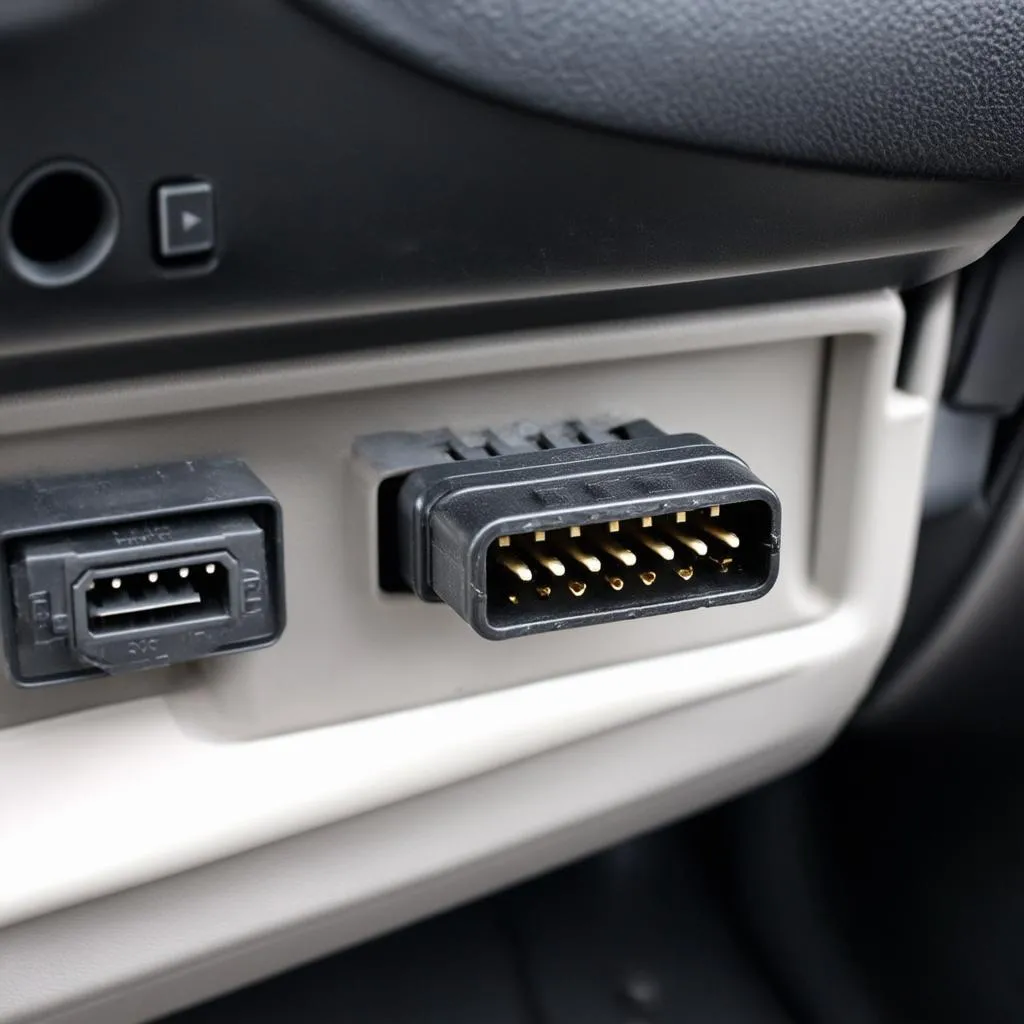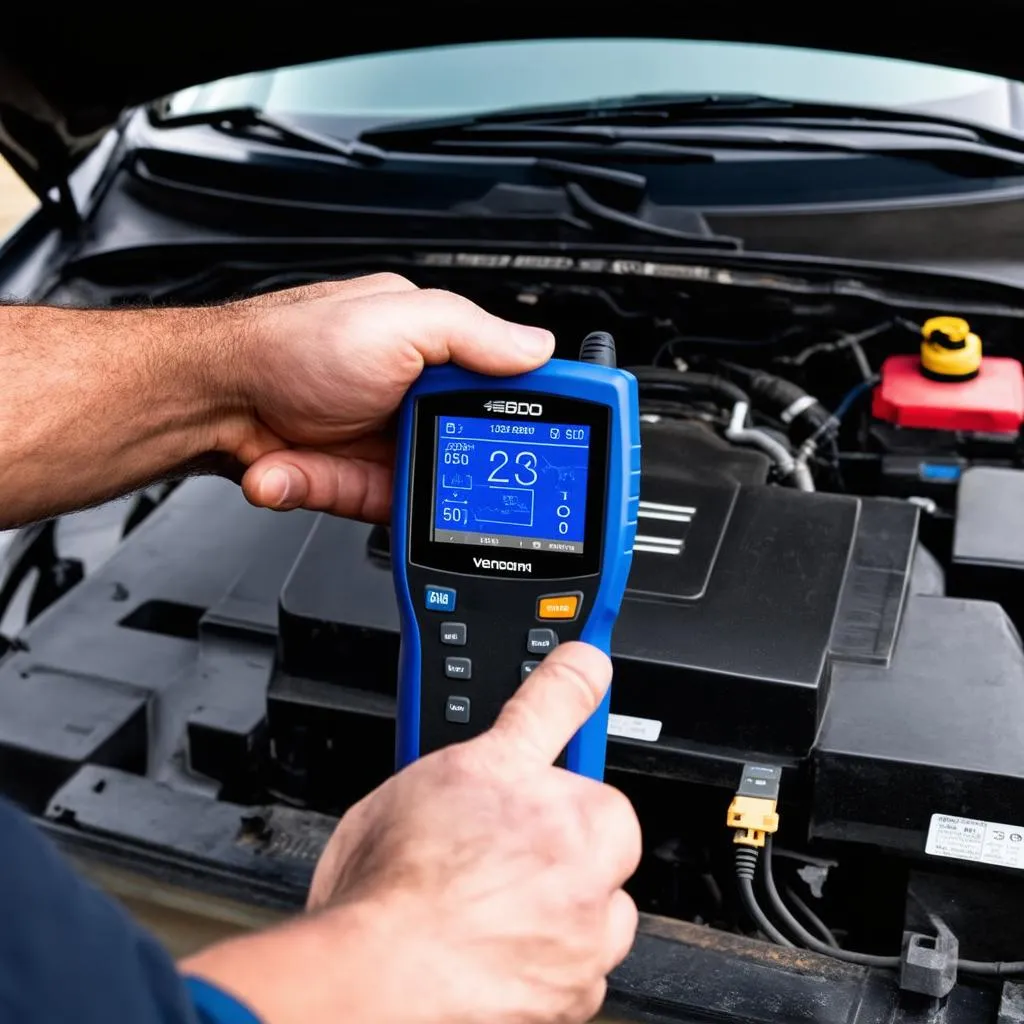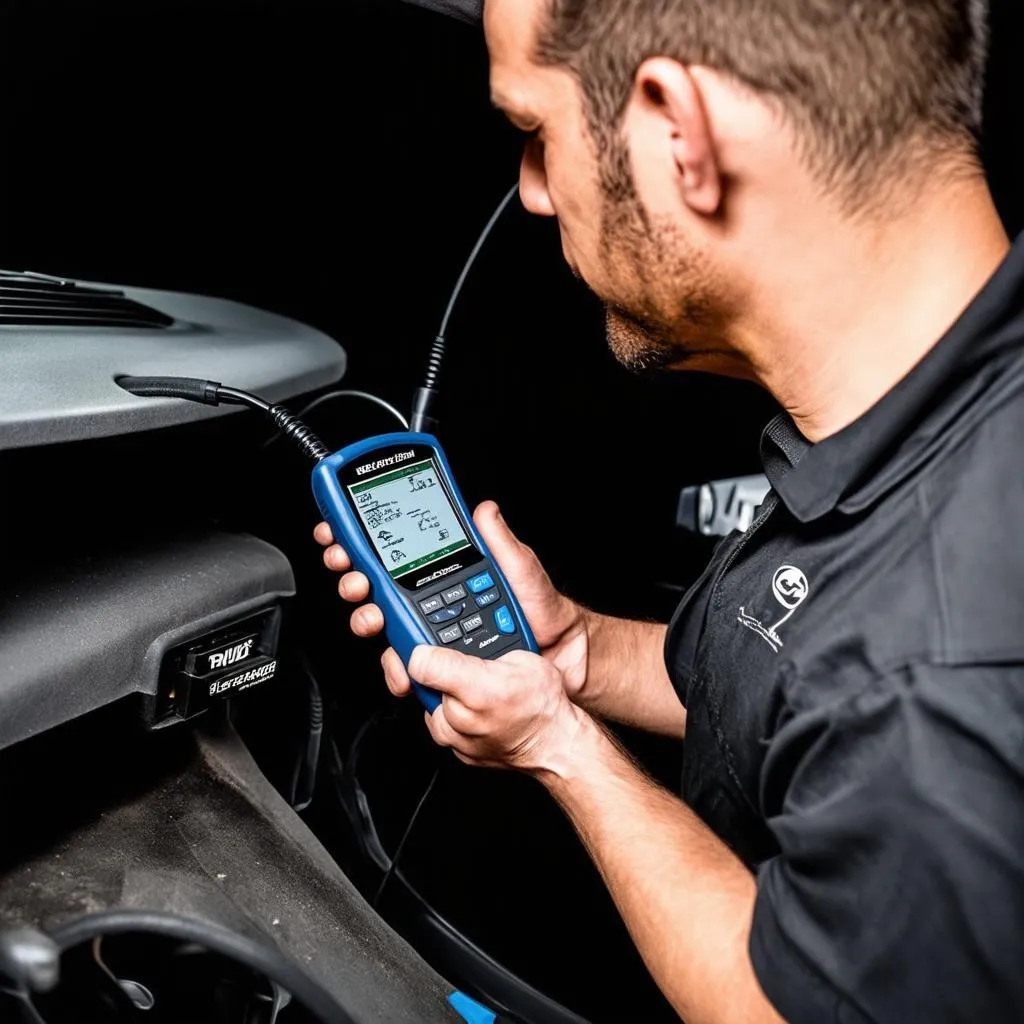Have you ever wondered if your car has more than one OBD port? It’s a question that many car owners ask, and it’s a good one! After all, the OBD port is the gateway to all sorts of information about your car’s health, performance, and even its history. Let’s dive in and learn more about this important topic!
The Significance of the Question:
The question “Do Cars Have More Than One Obd Port?” isn’t just about technicalities; it touches on a core desire for car owners to understand their vehicles better. It’s a quest for knowledge, a search for control, and a yearning for peace of mind.
Imagine a scenario where your car suddenly starts behaving erratically. You pull over, pop open the hood, and start troubleshooting the problem. But where do you begin? How do you pinpoint the source of the issue? This is where the OBD port comes in. It’s your car’s lifeline, offering a window into its inner workings, allowing you to diagnose problems and make informed decisions.
The Answer:
In most cases, no, cars typically have only one OBD port. The OBD port is a standard diagnostic connector that allows mechanics and car owners to access the car’s onboard computer and retrieve diagnostic data. This data can be used to identify and fix a wide range of problems, from engine malfunctions to transmission issues.
Let’s consider some exceptions:
- Older Cars: Older cars might not have an OBD port at all.
- Specialty Vehicles: Some vehicles, such as race cars or commercial trucks, may have multiple OBD ports for specific purposes.
Do multiple ports provide additional benefits?
While multiple OBD ports could technically offer additional diagnostic capabilities, most cars don’t need them. The single port design is generally sufficient for all standard diagnostics, including emissions testing.
The OBD Port’s Location:
Most OBD ports are located under the dashboard, usually on the driver’s side. However, some car manufacturers place them in different locations, such as the center console or the glove compartment. You can usually find the location of your car’s OBD port in your owner’s manual.
Common Queries & Their Solutions:
Why should I be concerned about the location of my OBD port?
Knowing where your OBD port is located can save you a lot of hassle in the long run. For example, if you need to use a diagnostic scanner, you’ll need to know where to plug it in.
How can I use a scanner to access my car’s OBD port?
An OBD scanner is a device that plugs into your car’s OBD port. It can read and interpret diagnostic data from your car’s computer, helping you identify and fix problems.
What are some of the best OBD scanners?
- iCarsoft E660 ABS SRS ASEP BOBD II Diagnostic Tool: https://techcarusa.com/icarsoft-e660-abssrssasepbobd-ii-diagnostic-tool/
- Dealer Scanner for European Cars: This type of scanner is specifically designed to work with European cars, offering a comprehensive range of diagnostics and programming capabilities.
The Role of Technology:
The OBD port is a testament to the power of technology in the automotive industry. It allows mechanics and car owners alike to access valuable information about their vehicles and make informed decisions about maintenance and repairs.
Think of the OBD port as a bridge between you and your car’s “inner voice.”
It can help you understand your car’s needs and address its concerns, ensuring its optimal performance and longevity.
Additional Insights:
- OBD port technology continues to evolve. With the advent of wireless technologies, we’re seeing OBD scanners that can communicate with your car’s computer wirelessly. This eliminates the need for a physical cable and makes diagnostics even more convenient.
Connecting the Dots:
The OBD port is a vital tool for car owners, mechanics, and even insurance companies. It helps us understand our vehicles better, diagnose problems efficiently, and make informed decisions about our cars.
Call to Action:
For help with your car’s diagnostics or to learn more about the capabilities of dealer scanners for European cars, contact our team of experts at Whatsapp: +84767531508. We are available 24/7 to assist you.
Let’s keep your car running smoothly and safely!
Further Exploration:
- Can OBD2 Scanners Read OBD1? https://techcarusa.com/can-obd-2-2/
- Ford Focus ST OBD Scanner: https://techcarusa.com/ford-focus-st-obd-scanner/
- Can Advance Auto Check OBD1 Diagnostic? https://techcarusa.com/can-advance-auto-check-obd-1-diagnostic/
- 2019 Tesla Model 3 OBD Port: https://techcarusa.com/2019-tesla-model-3-obd-port/
 obd-port-location
obd-port-location
 obd-scanner-diagnostics
obd-scanner-diagnostics
 dealer-scanner-for-european-cars
dealer-scanner-for-european-cars